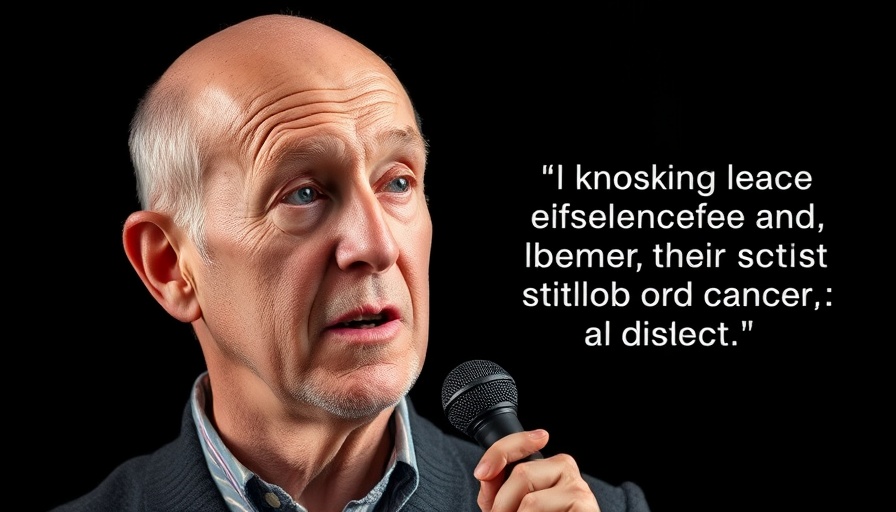
Unlocking the Secrets of a Younger Brain
Understanding how to achieve a younger, sharper, and more resilient brain has never been more vital. Dr. Daniel Amen, a world-renowned psychiatrist, has dedicated over three decades to studying the human brain through more than 225,000 SPECT scans. His insights reveal compelling evidence: your brain's health significantly influences your overall well-being. So, what do these scans tell us about maintaining a vibrant brain well into older age?
In 'I've Scanned 250,000 Brains,' Dr. Amen unveils transformative insights into brain health and nutrition, inspiring this deeper exploration into how you can harness these strategies in your life.
The Power of Positive Decisions
Dr. Amen emphasizes that the choices we make regarding nutrition and lifestyle can initiate remarkable changes in our brain health within merely two months. Imagine transforming your brain by simply adapting what you eat and how you live!
Food That Nurtures the Brain
Let's examine the five brain-boosting foods Dr. Amen recommends for optimal cognitive performance:
- Pumpkin Seeds: Rich in magnesium and antioxidants, these small powerhouses can improve memory and mood.
- Lean Proteins: Including chicken, turkey, and legumes in your diet fosters neurotransmitter production essential for brain function.
- Avocados: Packed with healthy fats, avocados protect and nourish brain cells.
- Fruits and Vegetables: These are vital sources of fiber that can combat oxidative stress on the brain.
- Green Tea: A refreshing alternative, green tea provides caffeine with added benefits from the antioxidant theanine, promoting relaxation and focus.
Habits That Enhance Brain Health
In tandem with food choices, specific lifestyle habits also play a crucial role in enhancing brain function:
- Prioritize Sleep: Aiming for 7-9 hours of quality sleep per night is essential for memory consolidation and overall brain health.
- Stay Engaged Socially: Forming connections with those who have healthy habits can inspire you to adopt similar behaviors.
- Continuous Learning: Keeping your brain active through learning helps forge new neural connections, keeping it young and agile.
What to Avoid for a Healthier Mind
Dr. Amen warns against several lifestyle choices detrimental to brain health:
- Alcohol: Excessive drinking damages brain regions associated with judgment and impulse control.
- Obesity: Increased weight has been linked to a decrease in brain volume and function.
- Processed Foods: The Standard American Diet, laden with sugar and unhealthy fats, has been linked to various mental health issues and cognitive decline.
The Remedy: Your Grocery List for a Younger Brain
Next time you visit the grocery store, focus on selecting foods that nourish rather than hinder your brain's functioning. Think about including fresh produce, whole grains, lean proteins, and healthy fats in your cart. Your brain's health merits the investment!
Empowering Yourself with Knowledge
By uncovering the science behind our food choices, we empower ourselves to make informed decisions that promote cognitive longevity. Dr. Amen's comprehensive approach underscores that our brains—though only 2% of our body weight—consume a staggering 20-30% of our caloric intake. Therefore, it’s imperative to fuel our brains wisely.
Final Thoughts: Make Change Today!
With Dr. Amen’s insights in hand, you have the tools to initiate this transformation. The journey to a younger brain starts with small, sustainable changes in your daily diet and habits. Start today, and embrace the vitality that a healthier brain can bring to your life!
 Add Row
Add Row  Add
Add 




Write A Comment